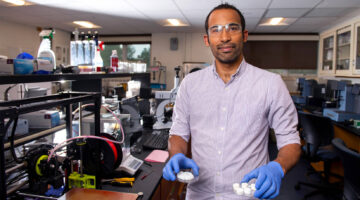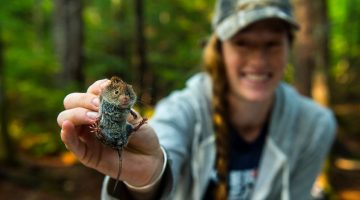Hafez to develop nanocellulose-based system to remove arsenic from drinking water
Islam Hafez will develop a nanocellulose-based point-of-use purification system that removes arsenic from drinking water. The United States Department of Agriculture awarded the postdoctoral researcher in the School of Forest Resources at the University of Maine $132,403 for the two-year project. The university is contributing $67,216 toward the project. “I like my work to be […]
Read more




